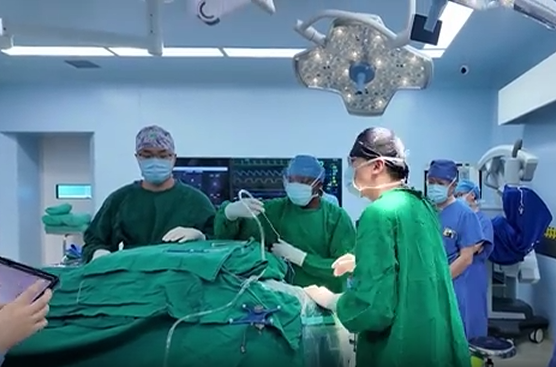(ECNS) -- The West China Hospital of Sichuan University successfully completed an implantable brain-computer interface (BCI) surgery on Friday.
The patient, who suffered limb paralysis due to a spinal cord injury from a car accident, now can move again using a mind-controlled robotic hand.

During the surgery, a brain-computer interface device was implanted outside the patient's dura mater and uses wireless power supply technology to achieve real-time transmission of electroencephalogram signals, enabling the patient to control a robotic hand with his mind and to once again have the ability to move.
This marks the first successful BCI operation in western China.
Previously, this technology underwent multiple clinical trials, with the longest implantation period lasting more than 21 months. Multi-center registration clinical trials are currently underway for this technology.
Through the BCI, researchers collect the user's brain signals, which are then filtered by algorithms to recognize intended movements and translate them into actionable commands.
Currently, China has approximately 3 to 4 million individuals living with spinal cord injuries, with about 80,000 to 90,000 new cases reported annually.
BCI technology is generally divided into two categories: non-invasive and invasive.
The method used in this surgery employs a high-sensitivity electrode array to capture brain signals associated with movement intention. Combined with neural signal decoding algorithms, it builds a "neural bridge" between the patient's brain and the external world, offering hope for rehabilitation therapies.
According to CCTV News, China’s BCI market size reached 3.2 billion yuan in 2024, with an annual growth rate of 18.8%. It is projected that the market size will exceed 3.8 billion yuan in 2025 and surpass 5.5 billion yuan by 2027, maintaining an average annual growth rate of around 20%.


















































 京公網安備 11010202009201號
京公網安備 11010202009201號